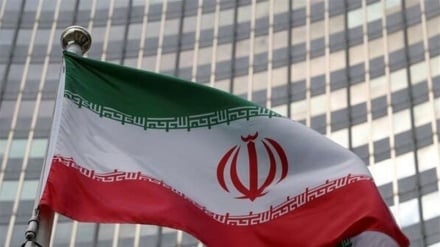Bahrain Broke Int’l Law by Revoking Top Religious Leader’s Citizenship?
It is now well over a month since the repressive Aal-e Khalifa regime in yet another illegal move against the country long suppressed majority, revoked the citizenship of senior religious leader, Ayatollah Sheikh Isa Qassim, worsening the 5-year crisis in the Persian Gulf island state.
The Bahraini people have shown unprecedented solidarity in their resistance against the US-UK-backed regime, and have refused to budge from the streets of the Diraz locality of Manama, adjoining the house of the revered Ayatollah, thereby thwarting the plots of the mercenary forces surrounding the area. On Friday, July 22, despite the ban on holding the Friday Prayers, thousands of Bahraini Muslims converged on various mosques to fulfill the weekly act of worship. Stay with us for an analysis titled “How Bahrain Broke International Law by Revoking Top Religious Leader’s Citizenship? The writer, Khalil Abdi Khalil Abdi is an alumnus of the Iranian Foreign Ministry’s School of International Relations and expert on International Law.
The Bahrain regime on 20 June 2016 stripped Sheikh Isa Qassim of his Bahraini citizenship. Ayatollah Sheikh Isa Qassim is Bahrain’s leading Shi’a Muslim religious scholar as well as spiritual leader of the country’s revolution. An interior ministry statement accused Sheikh Isa of using his position to serve what it alleged foreign interests and promote sectarianism and violence. It further alleged that “he has been in continuous contact with the organizations and parties that are enemies of the state.” The statement was followed by immediate reaction of Bahrainis. Demonstrations in the towns of Bilad al-Qadim, Buri and Sitra erupted into clashes between protesters and the regime’s mercenary forces. The Bahrain Forum for Human Rights has also censured the regime’s decision, calling the measure arbitrary and against international laws. It is worth noting that the Bahrain regime cited article 10 of Bahraini Citizenship Act of 1963 as a ground for deprivation of the Sheikh’s nationality. But, the question is, what is the basis for Bahrain’s claim in the international law?
Article 10 of the Bahraini Citizenship Act is about denationalization of nationality under certain circumstances. It set forth that “citizenship of Bahrain may be deprived from whoever enjoys such nationality on the following cases:
(a) If he enters in military service of a foreign country,
(b) If he helps or engages in service of an enemy country, or
(c) If he causes harm to the security of the State.
Although the Bahrain regime has mostly cited section (c) of this article, it has not been able to offer any evidence indicative of Sheikh Isa Qassim’s participation in acts which would harmful to the national security of Bahrain. We will examine the position of the international law considering the deprivation of nationality.
Article 8, section (1) of The UN Convention on Reduction of Statelessness 1961 expresses that “a contracting state shall not deprive a person of its nationality if such deprivation would render him stateless.” It is noteworthy that this convention is simply the most important international instrument concerning the nationality issue.
Article 13 of Universal Declaration on Human Rights states as following “Everyone has the right to a nationality and no one shall be arbitrarily deprived of his nationality nor denied the right to change his nationality.” Also article 7 of European Convention on Nationality 1997 states that “a state party may not provide for the loss of its nationality, if the person concerned would thereby become stateless.”
The text of the aforementioned provisions – each of them would be considered as the most important human rights texts – is quite clear, and straightforwardly put that stripping a person of its nationality without any conclusive evidences is fully contrary to the international law norms. Therefore, the act of the Bahrain regime has violated both contractual as well as customary international law.
For the sake of justification of its illegal act, the Bahrain regime has declared harm to its national security as a ground for stripping Sheikh Isa Qassim of his nationality. But what is the stance of such a claim in terms of legitimacy and admissibility in the international law.
Article 4 of International Covenant on Civil and Political Rights 1966 set forth that “In time of public emergency which threatens the life of the nation and the existence of which is officially proclaimed, the States Parties to the present Covenant may take measures derogating from their obligations under the present Covenant to the extent strictly required by the exigencies of the situation, provided that such measures are not inconsistent with their other obligations under international law and do not involve discrimination solely on the ground of race, color, sex, language, religion or social origin.”
Also article 15 of the European Court of Human Rights brings up exactly the same provision. This article clearly emphasizes that even if there is such a condition, instances as race, sex, language, and religion should not be involved in derogation of rights.
The Interior ministry of Bahrain alleged that Ayatollah Isa Qassim had “adopted the concept of Wilayat-e Faqih or governance of the supreme jurist, and stressed the absolute allegiance to the Marja’ or Source of Emulation of Shi’a Muslims, as well as trying to establish Shi’a Muslim administration in Bahrain.”
The Bahrain regime has obviously stressed its non-compliance to basic standards of human rights, in terms of prohibition of discrimination. On the other hand, almost all commentaries concerning the Article 4 of ICCPR has had a very strict interpretation of this article as an instrument to derogate from some human rights obligations. For instance, General Comment 29 of Human Rights Committee, which is the commentary organ of The UN human rights conventions, mentions two necessary conditions for a derogation being permissible. It states that “measures derogating from the provisions of the Covenant must be of an exceptional and temporary nature. Before a State moves to invoke article 4, two fundamental conditions must be met: the situation must amount to a public emergency which threatens the life of the nation, and the State party must have officially proclaimed a state of emergency. The latter requirement is essential for the maintenance of the principles of legality and rule of law at times when they are most needed.”
It is obvious that, in the case Bahrain, none of these conditions has been met; there is no public emergency situation in Bahrain threatening the life of nation, and if so, there has not been any official proclamation about existence of such condition in Bahrain. With regard to the aforesaid reasons, we come to believe that the act of the repressive Aal-e Khalifa minority regime in stripping Sheikh Isa Qassim of his Bahraini citizenship, not only has violated the international law, but also relying of the regime upon its own national security clause does not conform to the conditions that the international law has set in this regard.
AS/MG


